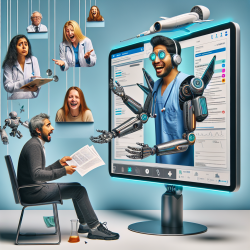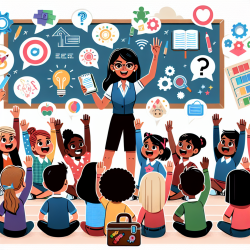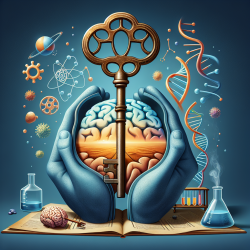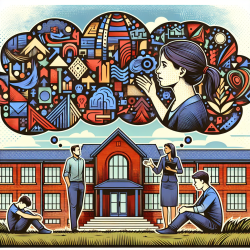Once upon a not-so-distant past, the idea of receiving therapy through a screen was as fantastical as having a pet unicorn. Fast forward to today, and here we are, navigating the intriguing world of online therapy services with the same ease as scrolling through our favorite social media feeds. But, dear government health regulators, before you raise your eyebrows in skepticism, let me take you on a humorous journey into the future of Individualized Education Programs (IEPs) and why embracing online therapy might just be the best plot twist in the story of educational support services.
Imagine, if you will, a world where children don't have to miss their therapy sessions because of a snowstorm, or because the family car decided it was a good day to start a rebellion against ignition. Yes, in the realm of online therapy, geography and unexpected life events are but minor inconveniences. But let's dive deeper, shall we? Let's explore the curious case of how online therapy is not just a band-aid solution but a thriving ecosystem that supports and enhances IEPs.
First off, let's address the elephant in the room – or rather, the pixelated therapist on the screen. One might wonder, can genuine connections and progress truly be made through a digital medium? The answer, much to the surprise of many, is a resounding yes. Just like how we've all become adept at forming meaningful relationships online (hello, have you ever been part of a fandom?), therapists and students have been finding innovative ways to connect, engage, and make significant strides in therapy. And let's be honest, in a world where kids are practically digital natives, engaging them in their natural habitat just makes sense.
Now, onto the nitty-gritty of IEPs. For those of you who might be scratching your heads, an IEP is a plan developed to ensure that a child who has a disability identified under the law and is attending an elementary or secondary educational institution receives specialized instruction and related services. It's like a personalized roadmap to success, but with more legal jargon. In the traditional model, IEP meetings are often akin to a circus – juggling schedules, finding a meeting room that doesn’t double as a storage closet, and the inevitable game of musical chairs. Enter online therapy, and suddenly, IEP meetings are as easy as logging into a video call. No more room booking fiascos, and definitely no more playing Tetris with everyone's schedules.
But it's not just the logistical nightmares that online therapy services are alleviating. It's about the accessibility and customization of therapy that truly revolutionizes the IEP process. With online therapy, there's a treasure trove of resources at the therapist's fingertips – interactive games, engaging activities, and a plethora of tools designed specifically for online delivery. This means that therapy sessions can be tailored to the child's interests and needs in real-time, making each session as effective as it is enjoyable.
Moreover, the flexibility of online therapy services means that support is not confined to the traditional school hours. Early birds and night owls alike can find a schedule that suits them, ensuring that therapy doesn't just become another chore to tick off the list but a meaningful part of their daily routine. And for the students who thrive in the comfort of their own homes, the ability to receive therapy in their safe space is invaluable.
Now, I can almost hear the murmurs of doubt. "But what about the human touch?" you ask. "How can we ensure quality control?" Fear not, for online therapy services are not the Wild West of healthcare. Just like traditional therapy, online therapists are licensed, certified, and undergo rigorous training to deliver high-quality care. Plus, with the added layer of technology, sessions can be recorded (with consent, of course), allowing for a level of oversight and review that was previously unimaginable.
So, dear government health regulators, as we stand on the brink of this digital frontier, let's embrace the curiosity that propels us forward. Let's explore the potential of online therapy services to enrich the lives of students with IEPs. After all, in a world that's constantly evolving, shouldn't our approach to education and therapy evolve too? Let's not shy away from innovation, but rather, let's leap into the future with a sense of humor and a heart full of hope. Who knows? We might just find that pet unicorn waiting for us on the other side.
In conclusion, the integration of online therapy services into the realm of IEPs is not just a fleeting trend; it's a transformative movement that has the potential to redefine the educational landscape. It offers a beacon of flexibility, accessibility, and personalized care that can significantly impact the lives of students, educators, and therapists alike. So, let's not view this through the lens of skepticism but as an opportunity to grow our knowledge and inspire a future where every child has the support they need to thrive. And who knows, maybe along the way, we'll share a few laughs and realize that the future of therapy isn't just bright; it's downright delightful.










